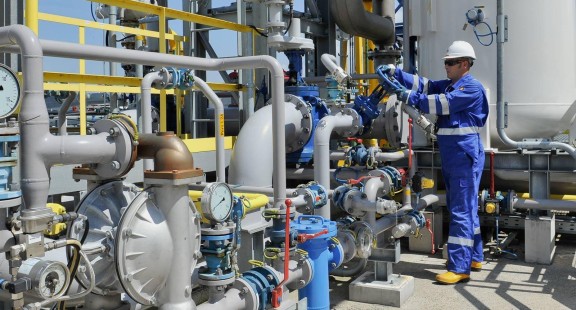Working in the port
In the Amsterdam port region around 70,000 people work every day. A real job engine for the Dutch economy! The jobs are very diverse, both in terms of content and level. Take a look at the vacancies, professions and training courses for working in the port.
Vacancies in the port area
Are you curious about vacancies in the port area?
Vacancies at Port of Amsterdam
Working at Port of Amsterdam? Take a look at our own vacancies.

Exchanging employees in the port via 'Havenspot'
Because of the corona crisis, do you have little work for your current employees, but don't you want to lose them either? Or do you have more work than employees because of the crisis?
Havenspot is the platform where you can temporarily exchange colleagues in an easily accessible way. In other words, you can hire and hire out colleagues. This is how we prevent forced redundancies. Together we are strong!
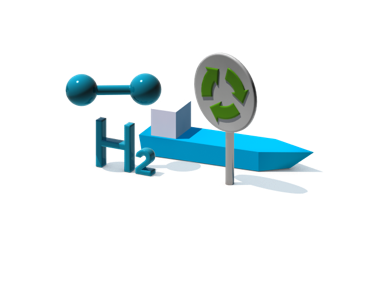
Dynamic and modern working environment
The port is a very interesting, dynamic and modern working environment. Some facts at a glance:
- Hydrogen. The port of Amsterdam is being made suitable for the use of hydrogen on a large scale. For example, the first hydrogen station and a super yacht that can sail on hydrogen are being built.
- Wind farms. Over the coming decades Amsterdam will be working hard to install large wind farms at sea. These should provide the Netherlands with electricity in the future.
- E-commerce. More and more e-commerce parties are establishing themselves in the port in order to be able to supply the city. As a result, the number of logistics jobs is increasing significantly.
- Automation. The number of IT functions is growing as a result of increasing automation. You can imagine that the role of cyber security, for example, is also becoming increasingly important in the port of Amsterdam. Automation is also increasing enormously in large distribution centres.
- Energy Transition & Circular Economy. Energy transition and the transition to a fully circular economy will require different competencies and skills from employees in the port in the coming years. New jobs will be created, including in the field of technology.
- International. The port is very international. As the fourth seaport of Europe, ships from all over the world come here to load and unload. Did you know, for example, that we are the largest import port of cocoa in the world?
- Not a day the same. Processes are changing rapidly, legislation is changing, and sustainability is becoming increasingly important. This also requires a lot from the employees in the port, so no day is the same!

Professions in the port
A variety of jobs can be found at the Port of Amsterdam. There are huge differences in terms of the duties and level. It is not feasible to list all the jobs available, but you can get a feel for the positions that are available at the port here.
Administrative logistics employee
Role description
As an administrative logistics employee, you deal with incoming and outgoing goods for sea and road transport. That means helping to receive and check materials. You prepare shipments and often put these together from multiple orders (assembly).
You also ensure that carriers have the right transport documents, such as customs declarations. You register all this as part of day-to-day administration.
Requirements
- You think and work at a secondary vocational education (MBO) level
- You speak and write fluent Dutch and reasonable English
Typical salary
- Starting scale €1,700 per month
- Up to €2,200 per month
Assembly employee
Role description
As an assembly employee, you put together entire or parts of hydraulic or mechanical machines out of various components. It could be an earth-moving machine, which can contain more than 3,000 components!
You ensure that the specific components are retrieved from the warehouse, checked and unpacked. You use detailed parts lists, specifications and tight schedules to help you. Once you have assembled your product or machine, you need to check that it meets the quality and safety standards.
Requirements
- Pre-vocational secondary education (VMBO)
- Passion and knowledge when it comes to hydraulic and mechanical systems
- Many companies offer their own training courses to build up the specific knowledge and skills required.
Assistant head of operations and planning
Role description
For this role, you need to have an eye for detail, be well organised and be able to make decisions. You gather all the relevant information on agents, hauliers, shipping companies and recipients in order to plan shipping and freight forwarding operations.
Each day you prepare the planning. You make sure that the teams, number of people and materials are coordinated as efficiently as possible. If the head of operations and planning is off site, you are in charge of the definitive planning.
Moreover, you keep in daily contact with recruitment agencies. You also help to check that quality, employment and environmental regulations are being implemented and complied with. And you help improve business and logistics processes. Good communication skills are vital, since you will be in contact with customers and suppliers.
Requirements
- Higher professional (HBO) level or scientific (WO) level
- Broad knowledge of logistics and logistics processes
- At least 2-3 years of experience in an operational environment
- Able to speak and write fluent English
Progression opportunities
Head of operations and planning
Employers
Include VCK
Boatman
Role description
Boatmen, also known as handymen, help vessels to moor and cast off. Or rather they help to secure or unsecure them from the quay. As a handyman or woman, you take the vessel’s mooring lines and tie them to the posts on the quay wall. You also do the same thing in reverse when the ship is ready to depart.
You work closely with the vessel’s crew when mooring. The work is very physically demanding, as the vessel’s mooring lines can weigh dozens of kilograms.
Requirements
Pre-vocational secondary education (VMBO) as a minimum.
Car logistics operator
Role description
A car logistics operator is the term used to refer to someone who carries out stevedoring work on car-carrying ships. You move cars around the port and drive them onto and off vessels (roll on/roll off). You make sure they have been secured or unsecured as appropriate.
The latter task is a huge logistical team effort, which needs to be carried out strictly to plan. Sometimes you will be dealing with hundreds of cars at the same time. The longer the ship is stuck in port, the more it costs.
As well as moving cars, you will also make sure that they are fuelled and washed.
Requirements
- Pre-vocational secondary education (VMBO) level of working and thinking
- Category B driving licence
- Some experience of using a computer (PDA) is a bonus
Car repair operator
Role description
As a car repair operator, your job is to move cars and carry out minor repairs or adjustments to the vehicles. The vehicles are brought in by ship or by road (often leased cars).
You could be installing radios, applying stickers or replacing rims. Furthermore, you prepare any cars with paint damage ready for treatment by the spray painters. This could involving buffing out light damage, masking parts that are not to be painted and any other simple preparation work.
Requirements
- Pre-vocational secondary education (VMBO) in a technical field or similar level of education
- At least 1 year of experience in similar work
- Category B driving licence
Car sprayer
Role description
The term car sprayer says it all. You operate the machines to apply primer and paint to cars. You read the drawings yourself and tape down the parts that are not meant to be sprayed. The work requires the utmost concentration when it comes to preparing the equipment and paint. You need to get the exact mixing ratio and the right thickness.
You also test the colours and quality and rectify minor faults. Of course, you need to clean and maintain the spray gun, drying and blasting cabin, paint mixer and degreasing machine.
Requirements
- Secondary vocational education (MBO)
- You have an interest in technology
- You master painting techniques like Airmix, HVLP and electrostatic spraying
- Some companies offer (paid) sandwich courses through the Regional Community College
Typical salary
- Starting scale €1,650 per month
- Up to €2,000 per month
Employers
Include Hitachi and Koopman Car Terminal
Construction worker
Role description
As a construction worker, you build tailor-made components in order to assemble machine parts. This could be a lifting arm of an earth-moving machine, for example.
You use construction moulds to help you do this. Usually these are already prepared. Now and again you will have to make these moulds yourself.
You make sure that the various components are fit and stuck firmly together, with welding sometimes involved. Finally, you check the quality of new machine parts and ‘seal’ them with a new production number.
Requirements
- Pre-vocational secondary education (VMBO)
- Knowledge of MIG/MAG welding processes is sometimes required
Progression opportunities
You can develop yourself further to become a specialist welder or team leader, for example.
Controller
Role description
The controller is in charge of checking whether licences, permits and other regulations are being duly complied with. You are responsible for them.
As a controller, you have a specific area of work. One controller might focus more on technology and machines, while another monitors working practices and procedures.
Owing to the international and versatile nature of the port, there are quite a few rules and agreements to deal with. As a controller, you also need to frequently consult with companies and carry out inspections. Sometimes announced, but usually unannounced. If required, you will need to offer assistance if penalties are issued.
Prior training
Pre-vocational secondary education (VMBO) or secondary vocational education (MBO), depending on the type of controller work.
Driver – fork-lift truck
Role description
As a fork-lift truck driver, you transport a variety of products around the industrial estate using a fork-lift truck. Your working environment depends on the type of business.
Sometimes the emphasis is on loading and unloading railway wagons and trucks. For other companies, you may be working more inside the warehouse. You collect goods from their storage locations, stack pallets on top of each other, and load and unload goods between locations.
Your work as a fork-lift driver is often combined with that of an order picker.
Typical salary
- Starting scale €1,550 per month
- Up to €1,850 per month
Employers
Include VCK
Driver – large vehicle
Role description
They may be ships in the port, but without road transport they are nowhere. As a driver with a large driving licence, you can go anywhere in the port. For example, as a driver of a low loader, of a tank lorry or as a transporter of dangerous goods.
From the port (and back again) you can work as a driver for domestic or international transport. In the latter category you often have to deal with double manned shuttle rides.
Requirements
Category CE driving license
Driver - Ro-Ro
Role description
As a roll on/roll off driver, you keep yourself busy with the stevedoring work on car carriers. You move cars across the port site, drive them up and down the ship (roll on/roll off) and secure or unlock the cars.
The latter is often an enormous logistical feat of teamwork that is carried out according to a tight schedule. Sometimes it involves hundreds of cars at a time. And the longer a ship is idle, the more it costs. In addition to moving the cars, you also make sure that they are refuelled and washed.
Requirements
- VMBO working and thinking level
- Driving licence B
- Some experience with computer use (PDA) is a bonus
Driver – small vehicle
Role description
The port is an enormous area, home to numerous companies that work together and exchange materials and documents with each other. Often this needs to happen quickly, especially if a vessel is about to set sail.
As a driver of a car, van or minibus, you ensure that goods, passengers, documents and packages arrive at their destinations quickly and safely. You are of course responsible for your ‘own’ vehicle.
Requirements
Driving licence B
Driver – straddle carrier
Role description
A straddle carrier is a typical port vehicle. This machine is used to move large shipping containers across the port. Usually between storage areas, trucks and trains. The cabin is 13 meters high, so you need to have a head for heights.
You receive loading and unloading instructions from the planners through a computer system. As a straddle carrier driver, you are a vital link in the long logistics process chain. Your duties rely heavily on loading or unloading vessels by cranes.
On top of that, you will also often have to check seals, ensure containers are loaded/unloaded safely, or work on the reach stacker.
Requirements
- Pre-vocational secondary education (VMBO) or secondary vocational education (MBO)
- Category B driving licence
- Ideally some experience with transport around the port
Progression opportunities
Experienced operational staff/straddle carrier drivers may ultimately become a crane operator as well.
Fixed crane operator
Role description
As a fixed crane operator, you sit in a fixed crane which hoists goods from one place to another. Such as from a vessel, along the quay or on/off a train. Many stevedoring companies have their own fixed cranes and crane operators.
As part of your duties, you keep in contact with colleagues on the ground such as the riggers (the crane operator on the ground) and stevedores. Plus, you consult with the supervisor and/or foreman on working procedures.
Typical salary
- Starting scale €2,000 per month
- Up to €3,100 per month
Employers
Include VCK
Freight forwarder
Role description
As a freight forwarder, you plan and manage cargo transport for a variety of customers. The idea is to collect as many orders as possible from different traders and producers and combine them into one transport load. Therefore there is some calculation, managing and administrative work involved.
In addition, you need to negotiate prices, draw up contracts, and provide freight documents, customs letters and other paperwork. You will closely monitor transport planning and loading/unloading times.
Requirements
Higher professional level (HBO) / Scientific level (WO) in freight forwarding, distribution, transport or logistics management
Freight forwarding administrative commercial employee
Role description
In this office-based role, you are responsible for receiving and dispatching shipments. For instance to Africa and Asia. You keep in contact with customers and shipment lines and you take care of correspondence. In writing, by telephone and in person.
You also ensure that carriers have the right transport documents, such as customs declarations and invoices. You process these as part of day-to-day administration. Above all, you make sure everything runs quickly and smoothly, because any delays could result in unnecessary extra costs.
Requirements
- The ability to think at an secondary vocational education (MBO) level, specialising in logistics
- You speak fluent Dutch and English, and ideally some French
- You are familiar with Windows
- Experience in roll-on/roll of is an advantage
Typical salary
- Starting scale €1,750 per month
- Up to €2,250 per month
Handyman
Role description
Handymen help vessels to moor and cast off. Or rather they help to secure or unsecure them from the quay. As a handyman or woman, you take the vessel’s mooring lines and tie them to the posts on the quay wall. You also do the same thing in reverse when the ship is ready to depart.
You work closely with the vessel’s crew when mooring. The work is very physically demanding, as the vessel’s mooring lines can weigh dozens of kilos.
Requirements
Pre-vocational secondary education (VMBO)
Machine operator
Role description
As a machine operator, you operate different production machines. These machines vary between companies. You have packaging machines, cutting machines, moulding machines, wood processing machines, you name it.
Each machine has a different way of operating and its own settings and safety procedures. That is why it is crucial that you easily understand technical drawings and instructions.
During production, you check the quality of the workpieces and adjust the machine accordingly if required. Many companies want their operators to be able to work on as many machines as possible. That means a lot of variety is involved.
Requirements
- Pre-vocational secondary education (VMBO)
- Sometimes specific training requirements apply, such as knowledge of MIG/MAG welding
Typical salary
- Starting scale €1,650 per month
- Up to €2,100 per month
Mariner
Role description
As a mariner, you will be responsible along with the helmsman and any other sailors for the maintenance and appearance of the ship.
You will help with duties such as lubricating and inspecting the engines, and cleaning and painting the exterior. At the port, you will help navigate during special manoeuvres. Such as mooring and casting off, in cooperation with the handyman. You should keep a watchful eye out during loading and unloading, and make sure the ship is ready to set sail for its next voyage.
The work is highly dependent on the type of vessel you work on. But mariners on passenger, carrier, inland or sea vessels can be found everywhere.
Requirements
Completed training as a mariner in inland navigation
Mobile crane operator
Role description
A mobile crane operator drives a mobile crane that is typically used to move or dig loose material such as sand, gravel, mud and coal.
You often receive instructions from the rigger (the crane operator on the ground) or the stevedore. Of course you also give signals back to them.
The working environment can be quite different, depending on whether you work with a dredger, a floating crane or a quay crane. As a mobile crane operator, you help to assemble the crane in the right place or on a rail and ensure it is ready for use. You need to maintain the crane and carry out minor repairs to ensure goods are hoisted smoothly and securely.
Typical salary
- Starting scale € 2,000 per month
- Up to € 3,100 per month
Progression opportunities
- Superintendent
- Technical Assistant
- Work Leader
Order picker/warehouse worker
Role description
As an order picker or warehouse worker, you load, unload and move products within a warehouse. Port warehouses are usually huge!
You work according to an order picking list. This is a list full of barcodes indicating what goods and how much you need to retrieve from the stock. It could be one item, a box or an entire pallet. Many order pickers therefore operate a reach truck or work as a fork-lift truck driver too.
You also help fork-lift truck drivers with loading and unloading, and take care of the formalities involved in releasing goods from the warehouse.
Requirements
Pre-vocational secondary education (VMBO)
Typical salary
- Starting scale € 1,400 per month
- Up to €1,750 per month
Progression opportunities
Warehouse manager
Employers
Include DSV Solutions
Pilot
Role description
A pilot is responsible for guiding vessels into and around the port. Many pilots have a specialisation. You could be a sea pilot, river pilot or port pilot.
The work of a pilot can also vary. You could pilot vessels remotely, using radar images for example. You could operate the pilot boat that guides vessels between the sea and the port. Or stand on the bridge of a vessel and instruct its master and helmsman.
You will know the port and the waterways inside out. Think of where any shallow water, hazards, tides, locks and other traffic routes on the water lie.
As a pilot, you are also often involved in planning changes to the port or shipping routes.
Prior training
Depending on the type of pilotage work, you need to have had the right maritime training.
Progression opportunities
There is a wide range of specialisations available in pilotage.
Port operations officer
Role description
You will primarily ensure that the loading and unloading of vessels runs smoothly, using a fork-lift truck where necessary. You are a vital link in the chain. After all, time is money. You check the picking lists and handle the administration.
Of course, you come into contact with a lot of other employees, both at the port and on board vessels. And you will need to speak English, which you will have learnt as part of your studies.
Requirements
- Pre-vocational secondary education (VMBO)
- You could take a sandwich course for a port worker level 1 or 2 through a Regional Community College such as the Nova College
- You have taken a health & safety course at level VVA1
Progression opportunities
You can progress to the role of bridge crane operator, team leader or process coordinator.
Employers
Through Stichting BORA, you could work for Ter Haak Group (United Stevedores), IGMA, OBA, Ceres or VCK.
Port worker – general control
Role description
This job is carried out for a stevedoring company. You perform administrative checks in the field of quality and health, safety and environmental legislation. You check goods for the make, quantity and damage, and process the associated documents.
It is also your job to digitally make sure the fork-lift truck driver knows where to move the goods. You also need to label the goods and record the stevedoring plans.
At the gate, you check materials delivered (such as trailers) for damage. You ensure that loading and unloading information is accurate. And you supervise third-party access and compliance with security and customs directives.
Requirements
Pre-vocational secondary education (VMBO) / Safety Checklist for Contractors / Internal training for checking loads
Progression opportunities
You could expand your role to load controller or crane operator, or stevedoring manager or team leader
Employers
Include VCK
Ship broker/shipping agent
Role description
As a ship broker or shipping agent, you are the point of contact at the port for one or more shipping companies.
You oversee loading and unloading of vessels and ensure that goods are stored and transported. You take care of all the formalities for the vessel and its cargo with the various authorities. Such as pilotage, the port company, customs, goods handlers, shippers and freight forwarders.
Often, you will also take care of the crew of the vessel, including responsibility for wages, medical care and supplies. Sometimes you need to sort out visas, flights and hotel accommodation.
Everything needs to be done as quickly as possible, otherwise the ship can’t leave the port. You will be working under pressure at all times.
As a tramp shipbroker, you run your own business and need to organise your own work. As a line shipbroker, you do the same work. But then you are employed by a shipping company and have customers assigned to you.
Requirements
Secondary vocational education (MBO) level 4
Spray painter
Role description
The term spray painter says it all. You operate the machines to apply primer and paint to cars. You read the drawings yourself and tape down the parts that are not meant to be sprayed.
The work requires the utmost concentration when it comes to preparing the equipment and paint, as you need to get the exact mixing ratio and the right thickness.
Moreover, you test the colours and quality, and rectify minor faults. You also need to clean and maintain the spray gun, the drying and blasting cabin, paint mixer and degreasing machine.
Requirements
- Secondary vocational education (MBO)
- You have an interest in technology and master painting techniques like Airmix, HVLP and electrostatic spraying
- Some companies offer (paid) sandwich courses through the Regional Community College
Typical salary
- Starting scale €1,650 per month
- Up to €2,000 per month
Employers
Include Hitachi and Koopman Car Terminal
Stevedore
Role description
Stevedore is the maritime term for someone who loads and unloads vessels. You never work alone. Most of the time you will be working as part of a team, led by a chief stevedore.
The work is as varied as the goods are. You could be dealing with bags, then barrels, boxes or rolls, and working with nets, slings, pallets or racks. Car-carrying ships also involve another degree of variety (see car logistics operator).
As a stevedore, you are the eyes and ears of the crane operator. You give them instructions on where to lift the goods and how, using a radio and hand signals.
It is your job to ensure that the goods are firmly secured to the crane or ship. As a stevedore, safety is your number 1 priority.
Stevedoring manager
Role description
You are a member of the management team of a port company that focuses on international transport, logistics and storage.
It is a versatile role with a lot of responsibility. You draw up annual plans and budgets. You help to establish collective agreements. And you check that the daily administrative and operational processes are being conducted in accordance with ISO, VCA, ISPS and other standards.
Additionally, you are responsible for the recruitment, training and absenteeism policies. And you are equally involved in customer acquisition and ICT.
In a nutshell, as a stevedoring manager, you are responsible for all the day-to-day processes of the operational part of the business.
Requirements
- You have a completed education beyond higher professional (HBO) level
- You have at least 5 years of relevant work experience, preferably in logistics
- You love working with technical and ICT developments
- You hold some specific management certificates, such as a valid VCA diploma for managers
- Also important: you speak and write fluent English
Team leader
Role description
As a team leader, you are in charge of the day's operations, such as loading, unloading, moving, storing and forwarding goods. You manage a team of your own people and temporary staff, and hold performance reviews.
It is your responsibility to give proper instructions and ensure high-quality work is carried out efficiently. You liaise with other team leaders to coordinate tasks. You also make sure quality, safety, environment and health regulations are complied with.
Requirements
- Secondary vocational education (MBO)
- Expertise in logistic processes, loading, unloading and storage
- Specialist middle management course or training
- Safety Checklist for Contractors (VCA) diploma for managers
- Emergency response (BHV) certificate
Progression opportunities
Assistant head of operations and planning
Employers
Include VCK
Water clerk
Role description
As a water clerk you work for a shipping company or ship broker. Your job above all is to ensure that a ship spends as little time at port as necessary. Think of it like race car making a pit stop. It is all about planning efficiently and a lot of organising. Where at sea are the vessels and which ports do they need to be at?
You maintain contact with the captain, usually in a foreign language. You arrange customs clearance for arriving and departing vessels, call for the teams and pilots required, and make sure the documentation in order. You also ensure that the stevedores, shippers and unloaders are all ready to perform their tasks. Plus, you check that the vessel has enough supplies for its next voyage.
Requirements
Higher professional level (HBO) / Scientific level (WO) in freight forwarding, distribution, transport or logistics management
Typical salary
- Starting scale € 1,750 per month
- Up to € 2,100 per month
Progression opportunities
Chief water clerk
Welder
Role description
Not all welding is the same. That is why you will find all different kinds of welders at the port. You have bench, construction, plate and pipe welders, as well as welders who work at different levels.
Many welders are used to repair and maintain vessels (even underwater!), but a lot of your work will be carried out on the quay. In any case, as a welder you join metal parts and components together by creating welding joints.
You will also cut, grind, sand and model the metal parts according to diagrams and drawings. After carrying out the welding, you check that the size and quality is right. Of course, you are also responsible for maintaining and cleaning the tools, jigs and measuring equipment.
Requirements
- Secondary vocational education (MBO)
- Knowledge and experience in MIG/MAG welding at NIL level 2 or 3 as a minimum
- Any knowledge of other welding processes, such as TIG and electric welding, is a bonus
- Many companies offer sandwich courses
Typical salary
- Starting scale € 1,750 per month
- Up to € 2,100 per month
Progression opportunities
Welders are always in demand. You can progress to become a senior welder or a welding foreman. There are a huge number of opportunities to specialise in this field, such becoming an underwater welder.
Employers
Include Shipdock and Hitachi.
Welding foreman
Role description
As a welding foreman, you carry out welding such as electrode welding or MIG welding at level 3 or 4. In addition, you handle the project management for the team of welders that you work with (4-8 people). You coordinate the work, taking into account your team’s experience, their schedules and the urgency of the job.
You issue instructions to your colleagues, help them with technical problems, take care of the planning and keeping track of the hours worked. You also check the quality of the work, using ultrasonic and x-ray equipment, for example. And of course you serve as the point of contact for the subcontractor, controller and the welding manager.
Typical salary
- Starting scale € 1,900 per month
- Up to € 2,300 per month
Employers
Include Shipdock and Hitachi.
Training by profession
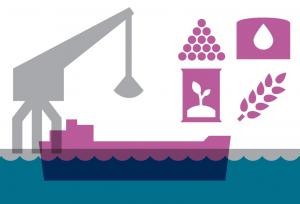
Logistic professions
We want to get the right goods in the right place at the right time. That requires good organisation, planning, control and export of the flow of goods. From the moment the raw materials are purchased to the delivery of the final product to the customer.
Logistic training courses
When working in the logistics sector, you can think of planning transport. Of assisting with the loading and unloading of ships, storage and stock management as a warehouse employee. But also of information management: organizing where, when and how the goods should be delivered.
Within logistics there is work at different levels. You can attend various training courses in preparation for work. For courses at vmbo and mbo level, you can go to the ROC of Amsterdam or the Nova College. For hbo courses to the Hogeschool van Amsterdam.
There is also the Shipping and Transport College in Amsterdam that offers courses at vmbo, mbo and hbo level. In addition, you can follow courses at all levels within the maritime sector at the Maritime Academy Holland.
University courses in the field of logistics are offered by the University of Amsterdam.
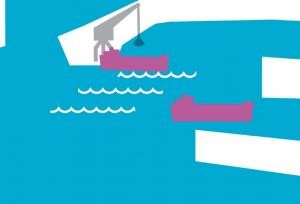
Maritime professions
Amsterdam has a rich maritime history. The port continues to demand nautical people. Both for port logistics, inland shipping, sea shipping, shipbuilding and maritime engineering.
Maritime training courses
Working in the maritime world is very diverse. There is a wide range of jobs at different levels, ashore or on the ship.
Within the Maritime Academy Holland you can choose from a wide range of full-time and corporate courses, open courses and in-company training. You can follow courses at all levels within the maritime sector.
In preparation for work, you can attend various courses:
- Vmbo and mbo level: Nova College
- Hbo courses: Hogere Zeevaartschool, part of the Hogeschool van Amsterdam
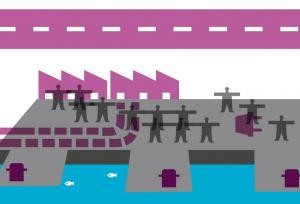
Technical professions
Many technical professions can be found in the port of Amsterdam. Think, for example, of a technician at a refinery or an electrician at a power station.
Technical training courses
You can become a maintenance technician who ensures that all production processes in a factory run smoothly. Or you can become an all-round operations technician who makes sure that complicated machines and installations in companies work properly and takes care of the inspection of different machines.
A completely different technical profession is that of welder. In that job, for example, you work at a shipyard, a machine factory or a construction workshop. There are also laboratories where research is carried out. And where cars come ashore, many functions can be found in car repair work.
Within engineering there is work at different levels. In preparation for work, you can go to various training courses:
- Vmbo and mbo level: ROC Amsterdam or Nova College
- Hbo level: Amsterdam University of Applied Sciences
- University programmes: University of Amsterdam

Administrative professions
You have administrative functions in various fields, such as communication, logistics or finance.
Administrative en financial training courses
Administrative
The logistics companies in the port are all concerned with keeping the logistics administration up to date.
As an administrative logistics employee you handle incoming and outgoing goods for ships or road transport. You help with receiving and checking material. You prepare shipments and often assemble (assemble) them from multiple orders. You also make sure that the transporters have the correct transport documents, such as customs documents. You keep track of all this in your daily administration.
There is work at various levels within the administration. You can attend various training courses in preparation for work:
- Vmbo and mbo level: ROC Amsterdam or Nova College
- Hbo level: Hogeschool van Amsterdam
- University programmes: University of Amsterdam
Financial
Companies in the port of Amsterdam also need financial people to keep their accounts in order. For this purpose, people are employed in the position of accounts receivable manager, accounts payable manager, bookkeeper or controller.
But financial functions can also be found at a higher level, for example in the role of controller. This is a financial-economic expert who supports the board and management in the management and control of the organization.
In the financial field, there is work at various levels. You can attend various training courses to prepare for work:
- Vmbo and mbo level: ROC Amsterdam or Nova College
- Hbo level: Hogeschool van Amsterdam
- University programmes: University of Amsterdam
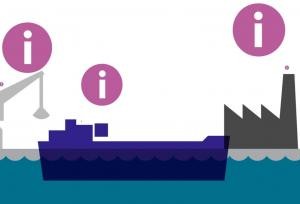
ICT professions
The Port of Amsterdam is a logistics hub for millions of European consumers. Products have to get to them faster and faster. An ICT specialist masters all aspects of ICT services.
ICT training courses
As an ICT specialist, you respond cleverly to technological developments. You test them for relevance and feasibility. And you support the functional administrators so that the ICT services are optimally aligned with the company's activities.
Are you more of a generalist or the one who plays an important role in the daily course of business? Or are you the analyst who provides management with strategic information? Then there are also functions such as helpdesk employee, functional manager or business analyst.
In the field of ICT, there is work at various levels. You can attend various training courses in preparation for work:
- Vmbo and mbo level: ROC Amsterdam or Nova College
- Hbo level: Hogeschool van Amsterdam
- University programmes: University of Amsterdam
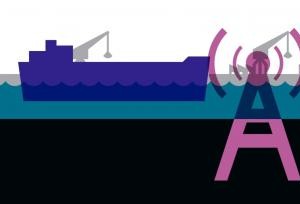
Security professions
Good security at port companies is necessary. A lot of valuable goods are stored and chemical or flammable substances are used.
Security training courses
A security officer ensures that the port and industrial area is safe. The need to secure and the possibilities to realize security are regulated in laws and regulations. The security officer sees to it that these are complied with. A security officer will have to reduce risks and increase safety during his or her work.
In the field of security, there is work at various levels. You can attend various training courses in preparation for work:
- Vmbo and mbo level: ROC Amsterdam or Nova College
- Hbo courses: Hogeschool van Amsterdam
- University programmes: University of Amsterdam

School projects
There are various school projects that bring students into contact with the port of Amsterdam and topics related to it. One of these is SHIP in IJmuiden.
SHIP
Are you curious about building the largest sea lock in the world? Would you like to know more about the North Sea Canal area and the activities in the ports of Amsterdam, Zaanstad, Beverwijk and IJmuiden? Then come to SHIP, the Sluis Haven Informatie Punt in IJmuiden.
More about SHIP
SHIP creates a new place for promoting technical education. Children from group 3 to 8 of primary schools and first and second grades of secondary education from all over the North Sea Canal area can follow educational Science and Technology workshops in SHIP.
If you want to get young people interested in technology, you'd better start on time. That is why the workshops are aimed at pupils between 6 and 15 years of age.
In the Technolab, two water tables will be used to give technology workshops aimed at the lock and port area. Pupils can, for example, simulate a rapids or learn how to load a ship stably in order to prevent shipwreck.
There will be lessons about currents and silting up in port construction, tugging and sailing. Together with primary education, Techport wants to expand the teaching activities in the Technolab in the coming years and give workshops on installation technology, construction, wind energy, circular economy and sustainability, for example.
In addition to these educational programmes, you can also visit SHIP with friends and family.
